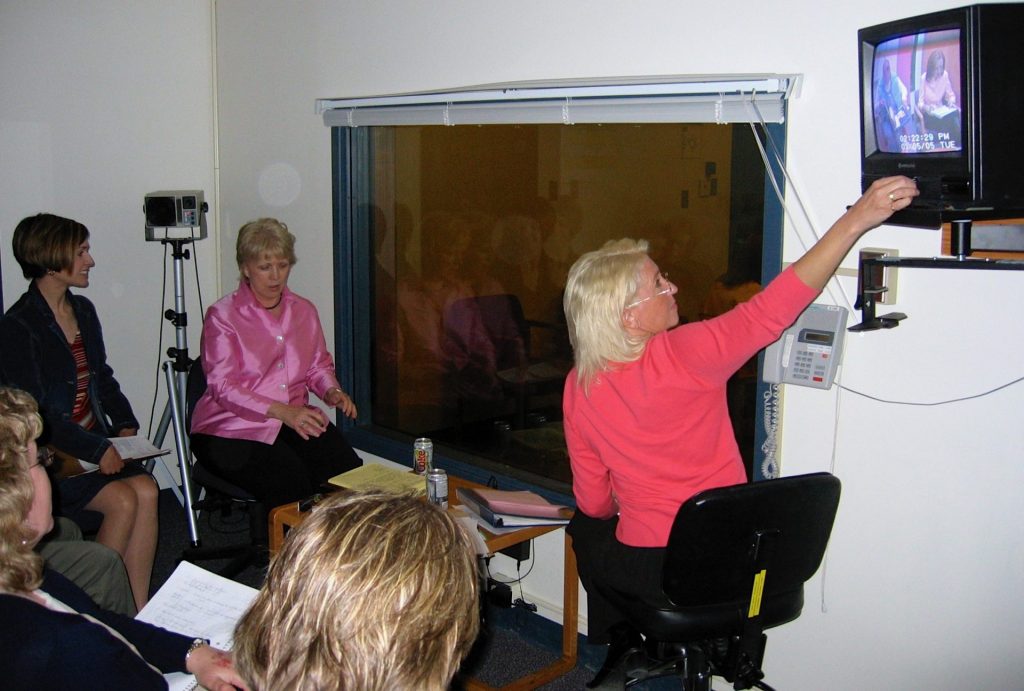What is clinical scholarship, you ask? It is a form of knowledge creation that focuses on being immersed in clinical practice, observing practice, analyzing practice, and synthesizing what you have learned from practice (Bell, 2003; Diers, 1995). It is not formal research per se, but a distant cousin; recognized as a form of scholarship but undervalued–even within practice professions like nursing.
For 25 years, the Family Nursing Unit (FNU) at the University of Calgary provided a place where family-focused clinical scholarship was valued and encouraged (Bell, 2008; Bell & Wright, 2007). A clinical team of faculty and graduate students offered therapeutic conversations to families experiencing serious illness.

The structure of clinical sessions was based on a variation of the five part session first suggested by the Milan Family Therapy Team (Tomm, 1984): 1) a pre session conversation between the clinical team members; 2) the clinical therapeutic conversation between the family and the clinician; 3) an intersession, in the form of offering a “reflecting team” (Andersen, 1991) where the family observed the clinical team members discuss their observations and reflections amongst themselves; 4) a concluding conversation between the family and the clinician; and 5) a post session conversation between the clinical members. The nurse clinicians for the family were faculty members, doctoral nursing students, or second year masters nursing students, and all family sessions received live supervision by a faculty member. All clinical sessions, as well as the clinical team’s pre and post sessions, were videotaped and archived after consent was obtained from family members and students.
This context provided an incredibly rich learning environment that provided all of the key ingredients for clinical scholarship to flourish: immersion in clinical practice with families, opportunities to observe and analyze the therapeutic conversation occurring between the family and the clinician/clinical team; and a quest to share our evolving understanding of family nursing practice through the publication of books, journal articles, etc.
The Illness Beliefs Model, Trinity Model, and the Calgary Family Assessment and Intervention Models are all products of family-focused clinical scholarship and a program of research. The FNU closed in December 2007 and publications written by former graduate students and/or faculty highlight a continuing legacy of clinical scholarship about practice with families:
Janice M. Bell, RN, PhD
